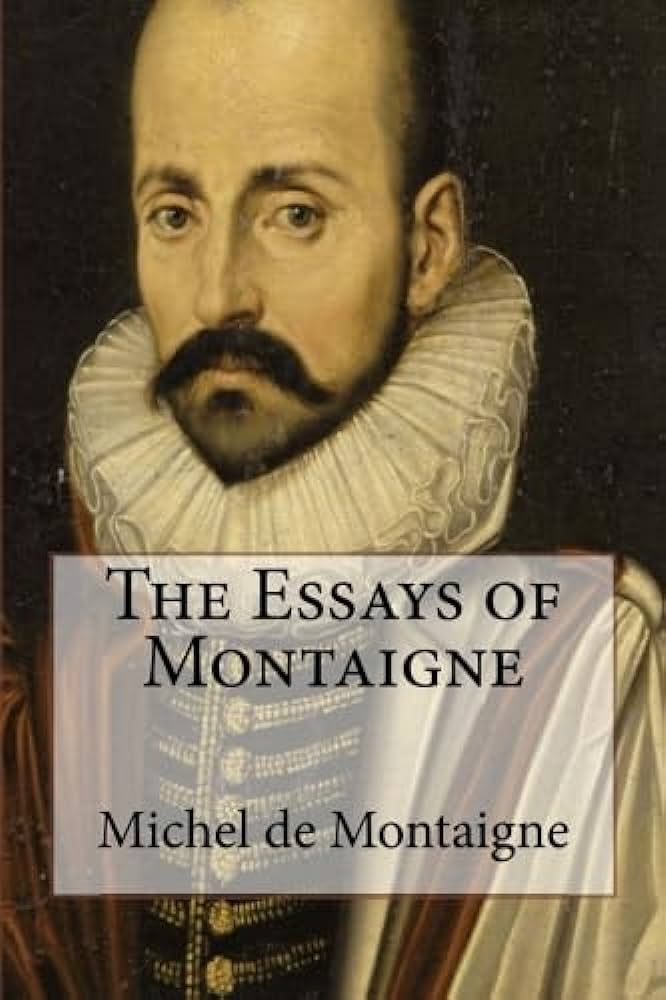The Essays by Michel de Montaigne are comprised of three books and 107 chapters of varying lengths. Originally written in Middle French, they were published in the Kingdom of France. Montaigne’s primary intention in writing, publishing, and revising the Essays from approximately 1570 to 1592 was to document “some traits of my character and of my humours.” First published in 1580, the Essays explore a wide array of topics.
Montaigne’s Essays exerted a significant influence on both French and English literature, shaping thought and style. Through his introspective and exploratory approach, Montaigne pioneered the essay as a literary form, influencing subsequent generations of writers in both France and England. His candid reflections on human nature, society, and philosophy continue to resonate with readers today, making the Essays a timeless masterpiece of Renaissance literature.
Summary Of The Essays
The Essays, which delves more into education and philosophical subjects and shatters the dogmatism of the Middle Ages, is an enlightenment work. Being one of the most important sources of humanist culture, this work has remained a bedside book for intellectuals despite 441 years since its writing. Montaigne, considered the most important thinker to focus on humanity after Socrates, taught European people to think freely with this book.
The stated purpose of Montaigne’s book is to present himself entirely with sincerity and honesty (“bonne foi”). The insight into human nature he offers through his essays is only a byproduct of them being widely read in broad circles. Although the consequences of his essays are deep and comprehensive, he stated that he did not expect or hope that they would attract much attention beyond their immediate circle. He began his essays by saying, “I am the subject of this book; it would be unreasonable to suspend your leisure time on such a futile and vain subject.”
The topics of the author’s essays range from the profound to the insignificant. The titles range from serious topics such as On Sadness and Grief and On Conscience to more ordinary subjects such as On Smells and Letter Writing. The author wrote during a period when the French Wars of Religion between Catholics and Protestant Huguenots were most intense. In the 15th and 16th centuries, Christianity was a period when Protestant writers tried to question church doctrine with reason and science. Therefore, some Catholic scholars adopted skepticism to discredit all reason and science and accept church doctrine only through faith.
Montaigne, in all his investigations, has found no certainty despite all his efforts and essays. He questioned his confidence in the human mind and experience. He believed that humans are naturally limited in fully or absolutely grasping the truth. While believing in the existence of absolute truth, he thought that such truth could only be accessed through divine revelation and that we remain in the dark on most subjects. He found the great variety and variability of human nature, consistent with Renaissance thought about human fragility, as the most basic characteristics.
According to the scholar Paul Oskar Kristeller, “the writers of the period were well aware of the pains and evils of our earthly existence.” A quote representing the author is: “I have never seen a greater monster or miracle than myself.”
Using the case of Martin Guerre as an example, the author believes that people cannot attain certainty. He expressed his philosophical skepticism best in his long essay titled “Apology for Raymond Sebond.” He argues that we cannot rely on reasoning because thoughts come to us: we do not really control them. Also, he says that we have no good reasons to believe we are superior to animals. He is skeptical of confessions obtained under torture and notes that such confessions can be fabricated by the suspect only to escape torture.
In the middle of the section “Man’s Knowledge Cannot Make Him Good,” he writes “What do I know?” In his essay on Sebond, he defended Christianity. The author also made many references and quotations from non-Christian ancient Greek and Roman writers, especially atomist Lucretius.
Montaigne preferred concrete examples and experience in the education of children over the teaching of abstract knowledge, which was expected to be critically accepted.
He opposed the colonization of America by Europeans and condemned the suffering they brought upon indigenous peoples.



